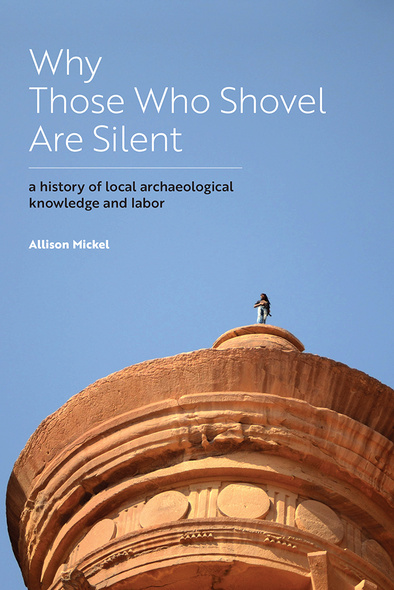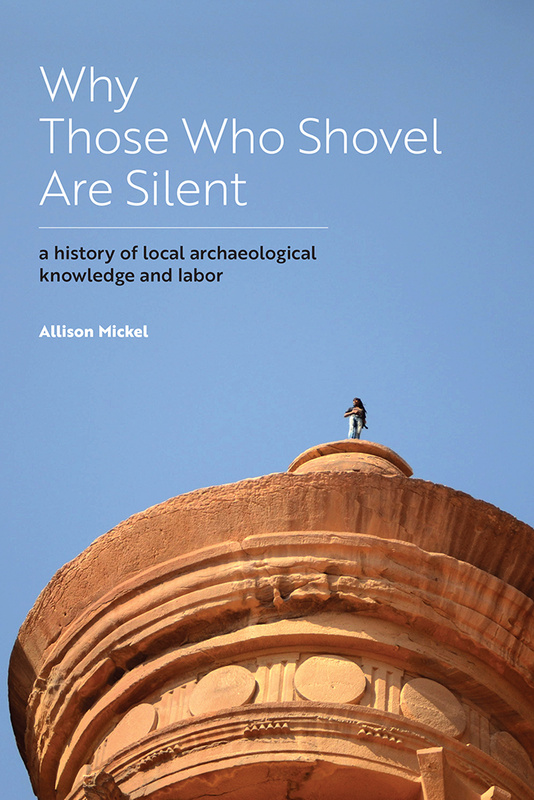Our shopping cart is currently down. To place an order, please contact our distributor, UTP Distribution, directly at utpbooks@utpress.utoronto.ca.
Why Those Who Shovel Are Silent
A History of Local Archaeological Knowledge and Labor
University Press of Colorado
For more than 200 years, archaeological sites in the Middle East have been dug, sifted, sorted, and saved by local community members who, in turn, developed immense expertise in excavation and interpretation and had unparalleled insight into the research process and findings—but who have almost never participated in strategies for recording the excavation procedures or results. Their particular perspectives have therefore been missing from the archaeological record, creating an immense gap in knowledge about the ancient past and about how archaeological knowledge is created.
Why Those Who Shovel Are Silent is based on six years of in-depth ethnographic work with current and former site workers at two major Middle Eastern archaeological sites—Petra, Jordan, and Çatalhöyük, Turkey—combined with thorough archival research. Author Allison Mickel describes the nature of the knowledge that locally hired archaeological laborers exclusively possess about artifacts, excavation methods, and archaeological interpretation, showing that archaeological workers are experts about a wide range of topics in archaeology. At the same time, Mickel reveals a financial incentive for site workers to pretend to be less knowledgeable than they actually are, as they risk losing their jobs or demotion if they reveal their expertise.
Despite a recent proliferation of critical research examining the history and politics of archaeology, the topic of archaeological labor has not yet been substantially examined. Why Those Who Shovel Are Silent employs a range of advanced qualitative, quantitative, and visual approaches and offers recommendations for archaeologists to include more diverse expert perspectives and produce more nuanced knowledge about the past. It will appeal to archaeologists, science studies scholars, and anyone interested in challenging the concept of “unskilled” labor.
Why Those Who Shovel Are Silent is based on six years of in-depth ethnographic work with current and former site workers at two major Middle Eastern archaeological sites—Petra, Jordan, and Çatalhöyük, Turkey—combined with thorough archival research. Author Allison Mickel describes the nature of the knowledge that locally hired archaeological laborers exclusively possess about artifacts, excavation methods, and archaeological interpretation, showing that archaeological workers are experts about a wide range of topics in archaeology. At the same time, Mickel reveals a financial incentive for site workers to pretend to be less knowledgeable than they actually are, as they risk losing their jobs or demotion if they reveal their expertise.
Despite a recent proliferation of critical research examining the history and politics of archaeology, the topic of archaeological labor has not yet been substantially examined. Why Those Who Shovel Are Silent employs a range of advanced qualitative, quantitative, and visual approaches and offers recommendations for archaeologists to include more diverse expert perspectives and produce more nuanced knowledge about the past. It will appeal to archaeologists, science studies scholars, and anyone interested in challenging the concept of “unskilled” labor.
‘A valuable and unique contribution to archaeology that responds to current concern with community engagement by foregrounding a community that paradoxically is rarely recognized.’
—Rosemary Joyce, University of California, Berkeley
‘The critical analysis of the underlying structures impinging upon the contribution of local labor to the construction of archaeological knowledge is a vital topic both within and outside the academy.’
—Brian Boyd, director of Museum Anthropology at Columbia University‘The author uses stories elicited through worker interviews to show that the wealth of archaeological knowledge developed by indigenous workers is lost to the profession when it is not considered worth recording.’
—CHOICE
‘If every dig director took the time to read this book, and apply the participatory practices suggested in it, the field of archaeology could become a more inclusive and enriching discipline.’
—BASOR
‘An important assessment of archaeological labor and contributes to a growing literature on the ethnography of archaeological practice.’
—American Anthropologist
‘Archaeologists who conduct fieldwork that includes local laborers, as well scholars using old excavation reports for their research, can benefit from this book, either in the way they organize and include the workers or in questioning what knowledge is missing from the reports due to the lack of the recording of all voices.’
—Bryn Mawr Classical Review
'An enlightening ethnographic-based critique of the dehumanizing, colonialist, and classist dynamics traditionally harbored in archaeological praxis.'
—Irene Marti Gil, Anthropology Book Forum
Allison Mickel is assistant professor of anthropology at Lehigh University. She has excavated in Kenya, Turkey, Jordan, and the United States and is the author of Archaeologists as Authors and the Stories of Sites.





